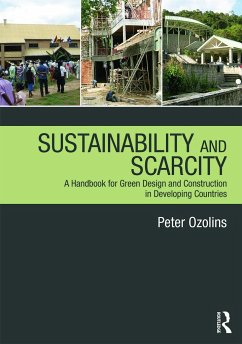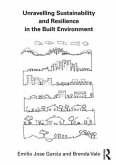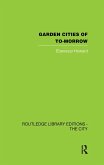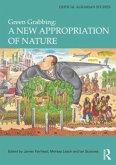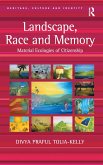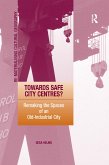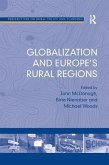Peter Ozolins
Sustainability and Scarcity
A Handbook for Green Design and Construction in Developing Countries
Peter Ozolins
Sustainability and Scarcity
A Handbook for Green Design and Construction in Developing Countries
- Broschiertes Buch
- Merkliste
- Auf die Merkliste
- Bewerten Bewerten
- Teilen
- Produkt teilen
- Produkterinnerung
- Produkterinnerung
The book describes the nature of green building in the developing world, elaborating the main issues that define sustainability in those contexts.
Andere Kunden interessierten sich auch für
![Unravelling Sustainability and Resilience in the Built Environment Unravelling Sustainability and Resilience in the Built Environment]() Emilio Jose GarciaUnravelling Sustainability and Resilience in the Built Environment71,99 €
Emilio Jose GarciaUnravelling Sustainability and Resilience in the Built Environment71,99 €![Capital Cities in the Aftermath of Empires Capital Cities in the Aftermath of Empires]() Capital Cities in the Aftermath of Empires72,99 €
Capital Cities in the Aftermath of Empires72,99 €![Garden Cities of To-Morrow Garden Cities of To-Morrow]() Ebenezer HowardGarden Cities of To-Morrow46,99 €
Ebenezer HowardGarden Cities of To-Morrow46,99 €![Green Grabbing: A New Appropriation of Nature Green Grabbing: A New Appropriation of Nature]() James FairheadGreen Grabbing: A New Appropriation of Nature81,99 €
James FairheadGreen Grabbing: A New Appropriation of Nature81,99 €![Landscape, Race and Memory Landscape, Race and Memory]() Divya Praful Tolia-KellyLandscape, Race and Memory78,99 €
Divya Praful Tolia-KellyLandscape, Race and Memory78,99 €![Towards Safe City Centres? Towards Safe City Centres?]() Gesa HelmsTowards Safe City Centres?55,99 €
Gesa HelmsTowards Safe City Centres?55,99 €![Globalization and Europe's Rural Regions Globalization and Europe's Rural Regions]() Birte NienaberGlobalization and Europe's Rural Regions77,99 €
Birte NienaberGlobalization and Europe's Rural Regions77,99 €-
-
-
The book describes the nature of green building in the developing world, elaborating the main issues that define sustainability in those contexts.
Hinweis: Dieser Artikel kann nur an eine deutsche Lieferadresse ausgeliefert werden.
Hinweis: Dieser Artikel kann nur an eine deutsche Lieferadresse ausgeliefert werden.
Produktdetails
- Produktdetails
- Verlag: Taylor & Francis
- Seitenzahl: 226
- Erscheinungstermin: 1. Oktober 2014
- Englisch
- Abmessung: 247mm x 175mm x 14mm
- Gewicht: 576g
- ISBN-13: 9780415689243
- ISBN-10: 0415689244
- Artikelnr.: 33611521
- Herstellerkennzeichnung
- Libri GmbH
- Europaallee 1
- 36244 Bad Hersfeld
- gpsr@libri.de
- Verlag: Taylor & Francis
- Seitenzahl: 226
- Erscheinungstermin: 1. Oktober 2014
- Englisch
- Abmessung: 247mm x 175mm x 14mm
- Gewicht: 576g
- ISBN-13: 9780415689243
- ISBN-10: 0415689244
- Artikelnr.: 33611521
- Herstellerkennzeichnung
- Libri GmbH
- Europaallee 1
- 36244 Bad Hersfeld
- gpsr@libri.de
Peter Ozolins, PhD established his architectural practice (www.peterozolinsarchitect.com) in 1998 after more than 20 years' experience as an architect in Africa, the Middle East and the U.S. During a 9 year residence in Madagascar and Tanzania he designed education and health-related projects for a variety of non-governmental organizations. He has also done consulting work for USAID, UNESCO and NGO's in various African countries, Iraq and Nepal. His U.S.-based work includes university, commercial and residential projects as well as continued overseas work. Peter Ozolins earned his PhD from Virginia Tech in Environmental Design and Planning, is a member of the American Institute of Architects and is a LEED accredited professional with the US Green Building Council.
Preface P.1 Why this book? P.2 What best way to help in the Least Developed
Regions (LDR's) P.3 For whom this book is intended and how might it be used
Introduction 0.1 What is this book? 0.2 Green building rating systems and
their role 0.3 Organization of this book 1. Sustainability, Green Building
and the Least Developed Regions (LDR's) 1.1 Sustainability and green
building 1.2 Sustainable development in the LDR's 1.3 Building construction
in the LDR's 1.4 Applicability of first world green building concepts in
LDR's 2. Principal Green Building Issues in the LDR's 2.1 Green Building in
the LDR's 2.2 Appropriate design 2.3 Building techniques and materials 2.4
Poverty, labour and employment 2.5 Security 2.6 Infrastructure 2.7 Food
production 3. Components of Green Building in the LDR's 3.1 Design
considerations 3.2 Site / environment 3.3 Building materials and technique
3.4 Infrastructure 3.5 Administration 4. Case Studies 4.1 Case studies:
purpose & utility 4.2 Tanzania - DCMC Guest House 4.3 Madagascar - Centre
ValBio 4.4 Haiti - Helping Hands Workshop 4.5 Nepal - Summit Hotel 4.6
Vietnam - Private House Epilogue Promulgation of green building concepts in
the LDR's
Regions (LDR's) P.3 For whom this book is intended and how might it be used
Introduction 0.1 What is this book? 0.2 Green building rating systems and
their role 0.3 Organization of this book 1. Sustainability, Green Building
and the Least Developed Regions (LDR's) 1.1 Sustainability and green
building 1.2 Sustainable development in the LDR's 1.3 Building construction
in the LDR's 1.4 Applicability of first world green building concepts in
LDR's 2. Principal Green Building Issues in the LDR's 2.1 Green Building in
the LDR's 2.2 Appropriate design 2.3 Building techniques and materials 2.4
Poverty, labour and employment 2.5 Security 2.6 Infrastructure 2.7 Food
production 3. Components of Green Building in the LDR's 3.1 Design
considerations 3.2 Site / environment 3.3 Building materials and technique
3.4 Infrastructure 3.5 Administration 4. Case Studies 4.1 Case studies:
purpose & utility 4.2 Tanzania - DCMC Guest House 4.3 Madagascar - Centre
ValBio 4.4 Haiti - Helping Hands Workshop 4.5 Nepal - Summit Hotel 4.6
Vietnam - Private House Epilogue Promulgation of green building concepts in
the LDR's
Preface P.1 Why this book? P.2 What best way to help in the Least Developed
Regions (LDR's) P.3 For whom this book is intended and how might it be used
Introduction 0.1 What is this book? 0.2 Green building rating systems and
their role 0.3 Organization of this book 1. Sustainability, Green Building
and the Least Developed Regions (LDR's) 1.1 Sustainability and green
building 1.2 Sustainable development in the LDR's 1.3 Building construction
in the LDR's 1.4 Applicability of first world green building concepts in
LDR's 2. Principal Green Building Issues in the LDR's 2.1 Green Building in
the LDR's 2.2 Appropriate design 2.3 Building techniques and materials 2.4
Poverty, labour and employment 2.5 Security 2.6 Infrastructure 2.7 Food
production 3. Components of Green Building in the LDR's 3.1 Design
considerations 3.2 Site / environment 3.3 Building materials and technique
3.4 Infrastructure 3.5 Administration 4. Case Studies 4.1 Case studies:
purpose & utility 4.2 Tanzania - DCMC Guest House 4.3 Madagascar - Centre
ValBio 4.4 Haiti - Helping Hands Workshop 4.5 Nepal - Summit Hotel 4.6
Vietnam - Private House Epilogue Promulgation of green building concepts in
the LDR's
Regions (LDR's) P.3 For whom this book is intended and how might it be used
Introduction 0.1 What is this book? 0.2 Green building rating systems and
their role 0.3 Organization of this book 1. Sustainability, Green Building
and the Least Developed Regions (LDR's) 1.1 Sustainability and green
building 1.2 Sustainable development in the LDR's 1.3 Building construction
in the LDR's 1.4 Applicability of first world green building concepts in
LDR's 2. Principal Green Building Issues in the LDR's 2.1 Green Building in
the LDR's 2.2 Appropriate design 2.3 Building techniques and materials 2.4
Poverty, labour and employment 2.5 Security 2.6 Infrastructure 2.7 Food
production 3. Components of Green Building in the LDR's 3.1 Design
considerations 3.2 Site / environment 3.3 Building materials and technique
3.4 Infrastructure 3.5 Administration 4. Case Studies 4.1 Case studies:
purpose & utility 4.2 Tanzania - DCMC Guest House 4.3 Madagascar - Centre
ValBio 4.4 Haiti - Helping Hands Workshop 4.5 Nepal - Summit Hotel 4.6
Vietnam - Private House Epilogue Promulgation of green building concepts in
the LDR's

